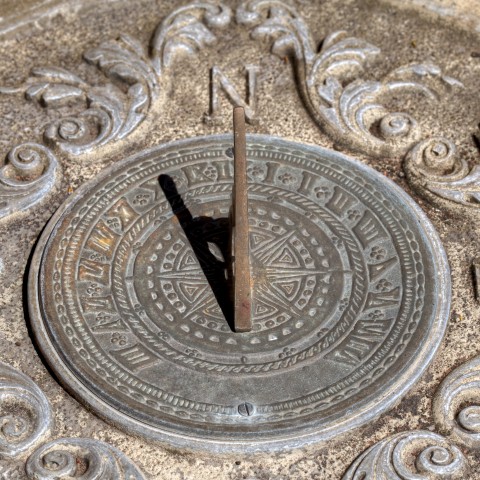
Knowing how to say goodbye is a key skill in any language. In Hebrew, as in most languages, the way we say goodbye depends on a number of factors, such as the particular situation we’re in, the person or people we’re addressing, and the time of day. Just as it’s crucial to leave a good first impression by saying hello and introducing yourself, it’s equally important to leave a good last impression by taking your leave in a manner suitable to the circumstances. Farewells are precisely the opportunity to do so; correctly using Hebrew goodbye phrases will show that you’re sensitive to the nuances of the language and culture.
In this article, we’ll look at the top ten ways to say goodbye in Hebrew. We’ll cover day-to-day goodbyes, goodbyes for different times of day, and goodbyes to be used in specific situations. By the end of today’s lesson, you should be well-equipped to say adieu to Hebrew-speakers in a number of the most common everyday situations. Start with a bonus, and download the Must-Know Beginner Vocabulary PDF for FREE!(Logged-In Member Only)
 Table of Contents
Table of Contents
- The Most Common Ways to Say Goodbye
- Saying Goodbye at Different Times of Day
- Ways of Saying Goodbye in Specific Situations
- Put Your Best Foot Forward with HebrewPod101
1. The Most Common Ways to Say Goodbye

First, let’s have a look at the most common ways to say goodbye. Each word and phrase listed here is pretty versatile, though they do vary in terms of their respective levels of formality. One of the great things about these expressions is that you don’t need to conjugate or modify them depending on the person or people you’re talking to. Each one is ready to go as-is!
You’ll notice that the first Hebrew word for goodbye here is just taken à la carte from English. While it could be considered slang, it’s so commonly used by now (as is the greeting “Hi”) that you can use it in any casual setting without fear.
- 1. ביי
Bay
“Bye”
As mentioned, this one is pretty much a catchall. Because this word is obviously “borrowed,” it’s important to note that Israelis pronounce it slightly differently than English-speakers do, elongating the diphthong (or mixed vowel sound). Also note that, in Hebrew, we use “bye” but not “goodbye.” For example:
- היה לי ממש כיף היום. ביי!
Hayah li mamash keyf hayom. Bay!
“I had a really good time today. Bye!”
- תודה שבאתם לבקר. ביי!
Todah she-batem levaker. Bay!
“Thanks for coming to visit. Bye!”
- 2. להתראות
Lehitra’ot
“See you (later).”
When it comes to saying goodbye in Hebrew, lehitra’ot is perhaps the most common expression. It’s literally just the unconjugated (infinitive) reflexive verb that means “to see one another.” You can use it in pretty much any situation.
- שיהיה לכם יום נעים. להתראות!
She-yihiyeh lakhem yom na’im. Lehitra’ot!
“Have a nice day. See you!”
- להתראות! אל תשכח להתקשר.
Lehitra’ot! Al tishkakh lehitkasher.
“See you later! Don’t forget to call.”
- 3. שלום, שלום
Shalom shalom
“Farewell.” (Literally: “Peace, peace.”)
This one is a bit more old-fashioned, and it’s more commonly used among older generations. However, it’s still a perfectly acceptable way of saying goodbye, even among younger folks, albeit a bit more formal. Note that we typically use a single “Shalom” for greeting and two for a farewell.
- תודה על הארוחה הטעימה, סבתא. שלום, שלום!
Todah ‘al ha-arukhah ha-te’imah, Savtah. Shalom, shalom!
“Thank you for the delicious meal, Grandma. Farewell!”
- שלום, שלום! ד”ש חמה להורים שלך.
Shalom, shalom! Dash khamah la-horim shelkha.
“Farewell! Warm regards to your parents.”
2. Saying Goodbye at Different Times of Day

We can also say goodbye by referencing the time of day or night. Don’t get too caught up on the precise time of day here. Just keep in mind that, like in English, we generally have different greetings for people depending on whether it’s morning (before noon), afternoon (after noon, but while it’s still light out), evening (dark out, but still not very late), or night.
Also note that in some cases, there’s some variation between how we use time references in greetings versus how we use them in farewells. For example, we usually say בוקר טוב (Boker tov), or “Good morning,” as a form of salutation, but we don’t typically use it as a farewell.
Below is an appropriate farewell to use any time in the morning (i.e. before noon).
- 4. יום טוב
Yom tov
“[Have] a nice day.”
- תודה על הייעוץ, דוקטור. יום טוב!
Todah ‘al ha-ye’utz, Doktor. Yom tov!
“Thank you for the advice, Doctor. Have a nice day!”
- יום טוב לך, גבירתי. התחדשי על הכובע החדש.
Yom tov lakh, gvirti. Hitkhadshi ‘al ha-kova’ he-khadash.
“Have a nice day, ma’am. Enjoy the new hat.”
The next Hebrew goodbye is used in the afternoon (after twelve o’clock noon, but before it gets dark). Note that the word for “afternoon” is plural, and conjugated accordingly. So, the word “good” will be טובים (tovim), and not טוב (tov).
- 5. צהריים טובים
Tzohorayim tovim
“[Have a] good afternoon.”
- תודה על הקפה. היה כיף לראות אותך, אבל אני חייב לחזור לעבודה. צהריים טובים!
Todah ‘al ha-kafeh. Hayah keyf lir’ot otakh, aval ani khayav lakhzor la-’avodah. Tzohorayim tovim!
“Thanks for the coffee. It was nice seeing you, but I have to get back to work. Have a good afternoon!”
- צהריים טובים. כבר אכלתם?
Tzohorayim tovim. Kvar akhaltem?
“Good afternoon. Did you eat yet?”
Once the sun starts going down, but before around nine or ten o’clock, we can use the following phrase to say goodbye.
- 6. ערב טוב
‘Erev tov
“[Have a] good evening.”
- נהיה כבר מאוחר ובעלי בטח מחכה לי בבית. ערב טוב!
Neheyah kvar me’ukhar u-va’ali betakh mekhakeh li ba-bayit. ‘Erev tov!
“It’s late already, and my husband is surely waiting for me at home. Have a good evening!”
- ערב טוב. כנסו בבקשה, ארוחת הערב כבר מוכנה.
‘Erev tov. Kansu be-vakashah, arukhat ha-’erev kvar mukhanah.
“Good evening. Please, come in. Dinner is ready.”
This last phrase should be reserved for the later hours of the day, typically after nine or ten o’clock.
- 7. לילה טוב
Laylah tov
“Goodnight.”
- אני ממש עייף, אז אני אלך לישון. לילה טוב! נתראה בבוקר.
Ani mamash ayef, az ani elekh lishon. Laylah tov! Nitra’eh ba-boker.
“I’m really tired, so I’m going to go to bed. Goodnight! See you in the morning.”
- לילה טוב. היזהר בכבישים! יורד גשם.
Laylah tov. Hizaher ba-kvishim! Yored geshem.
“Goodnight. Be careful on the road. It’s raining.”
Ways of Saying Goodbye in Specific Situations

For our final category, let’s look at some common ways of saying goodbye in Hebrew that are particular to specific situations. Be careful not to use these as liberally as those in our first category; you should only use them when the situation warrants it. It’s worth mentioning that there are many more condition-specific forms of goodbye than those listed here, but these are the most common ones.
The first farewell is used whenever we’re sending someone off on a journey. For example, when we’re taking someone to the airport to go on a trip to another country, or as that person is getting into their car to drive home.

- 8. נסיעה טובה
Nesi’ah tovah
“[Have a] nice trip.”
- נסיעה טובה! אני מקווה שתהנו באמסטרדם!
Nesi’ah tovah! Ani mekaveh she-tehanu be-Amsterdam!
“Have a nice trip! I hope you have fun in Amsterdam!”
- רוץ מהר שלא יסעו בלעדיך. נסיעה טובה!
Rutz maher she-lo yis’u bil’adekha. Nesi’ah tovah!
“Hurry up now so they don’t leave without you. Have a nice trip!”
The next Hebrew goodbye is for the Sabbath, which, in Judaism, begins Friday at sundown and ends a little after sundown on Saturday (specifically when three stars are visible in the night sky). This is more or less the Jewish equivalent of “Have a nice weekend.” Note that we can use this one as a greeting or a farewell, with no changes. We should also point out that this phrase is not limited to religious speakers or communities, but rather, it’s used by all to refer to what in Israel is the day of rest, separate from the workweek. Incidentally, the Israeli workweek is six days, beginning on Sunday.

- 9. שבת שלום
Shabbat shalom
“[Have a] peaceful Sabbath.”
- שבת שלום! אני מקווה שתנוחו אחרי שבוע ארוך של עבודה.
Shabbat shalom! Ani mekavah she-tanukhu akharey shavu’ah arokh shel ‘avodah.
“Have a peaceful Sabbath! I hope you rest after a long week of work.”
- שבת שלום לכל המשפחה. נתראה ביום ראשון.
Shabbat shalom le-khol ha-mishpakhah. Nitra’eh be-Yom Rishon.
“A peaceful Sabbath to all the family. See you on Sunday.”
Our last Hebrew goodbye is used on holidays, whether religious (e.g. Shavuot) or secular (e.g. Independence Day). As you’ll see in the two examples below, this can be used with or without specifying the particular holiday that’s being celebrated. Note that we don’t use this phrase on fast days or other solemn commemorative occasions, such as Yom Ha-Zikaron (Memorial Day).

- 10. חג שמח
Khag same’akh
“Happy holidays.” / “Happy [specific holiday].”
- שתהיה לכם אחלה חופשת פסח בצרפת. חג שמח!
She-tihiyeh lakhem akhlah khufshat Pesakh be-Tzarfat. Khag same’akh!
“Have a great Passover break in France. Happy holidays!”
- חג פורים שמח! נתראה במסיבה.
Khag Purim same’akh! Nitra’eh ba-mesibah.
“Happy Purim! See you at the party.”
Put Your Best Foot Forward with HebrewPod101

We hope you’ve found this lesson helpful, and that you can see how important it is to be prepared for different situations and the specific phrases they call for. There are obviously many other forms of farewell in Hebrew, but you now have a fair cross-section of words and phrases to help you say goodbye in any situation.
Is there a particular Hebrew goodbye phrase we didn’t cover that you would like to know? Unclear about one of the farewells we did cover? As always, we would love to hear from you with any questions or doubts you may have. Get in touch and let us know how we can help! That’s what we’re here for.
In the meantime, lehitra’ot!










